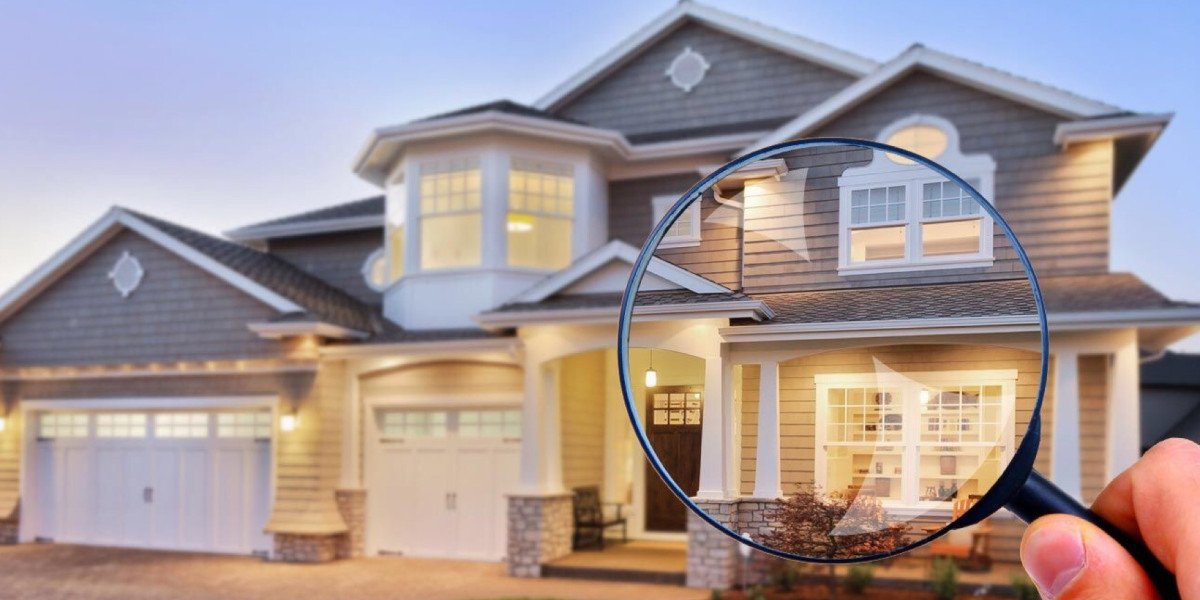When purchasing a home in Canada, one of the most important steps in the buying process is the home inspection. A home inspection can make the difference between buying a dream home and inheriting a money pit. Whether you’re a first-time homebuyer, an experienced property investor, or someone looking to sell their home, understanding the importance of a thorough inspection is crucial to ensuring that your investment is sound.
In this comprehensive guide, we’ll walk you through everything you need to know about home inspections in Canada—from what they include, to why they are necessary, and how to choose the right inspector. We’ll also touch on the role of inspections in various real estate markets across the country, as practices and regulations can vary between provinces. By the end of this post, you’ll have a clear understanding of the home inspection process and be better prepared to navigate the real estate market with confidence.
What is a Home Inspection?
A home inspection is a thorough evaluation of a property’s condition, typically conducted by a licensed and certified inspector. The inspector’s role is to evaluate the structure, systems, and components of the home, from the roof to the foundation. A proper home inspection provides a detailed report of any issues, safety concerns, and areas that may need repair or maintenance.
In Canada, a home inspection is not required by law when buying a home, but it is highly recommended for your protection. It can uncover potential issues that may not be obvious during the initial viewing or walk-through, and it can save you from making a costly mistake.
Why is a Home Inspection Important?
A home is one of the largest investments you will ever make, and the last thing you want is to purchase a property that has hidden problems. Here's why a home inspection is essential:
Uncover Hidden Issues: Home inspections can reveal problems that aren't visible to the untrained eye. Issues like electrical problems, plumbing leaks, foundation cracks, roof damage, or outdated wiring could be lurking beneath the surface, and a home inspection will bring them to light.
Ensure Safety: A qualified inspector can spot safety hazards such as mold, carbon monoxide, or faulty electrical wiring—issues that could pose serious risks to your health and safety.
Negotiation Tool: If an inspection uncovers problems with the property, it gives you leverage during negotiations. You might be able to request repairs from the seller or lower your offer price based on the findings.
Peace of Mind: Knowing the exact condition of the property can give you confidence in your purchase. Even if there are a few minor issues, you’ll have a clear idea of what to expect.
Future Maintenance Planning: An inspection can also help you plan for future maintenance. It can give you an estimate of how much time is left on critical elements of the home (like the roof, HVAC system, or foundation), allowing you to budget for future repairs.
What Does a Home Inspection Cover?
Home inspections vary in their thoroughness depending on the inspector, but there are some standard components that most home inspections will cover in Canada. These include:
1. Exterior Evaluation
Roof Condition: Inspectors check for missing or damaged shingles, leaks, and the condition of the gutters and downspouts.
Foundation: Cracks, settling, or water damage around the foundation will be noted.
Siding and Windows: The inspector will look for signs of rot, damage, or improper installation in the siding and around windows and doors.
Driveways and Walkways: Cracks, uneven surfaces, or drainage problems may be identified here.
2. Interior Evaluation
Walls, Ceilings, and Floors: Inspectors will look for cracks, stains, or signs of water damage, which could indicate issues with plumbing or the structure of the home.
Doors and Windows: These are checked for functionality, seal quality, and signs of drafts.
Stairs and Railings: These are assessed for safety and structural integrity.
3. Plumbing System
Pipes and Fixtures: Inspectors look for leaks, corrosion, or water pressure issues. They’ll also assess the condition of toilets, sinks, bathtubs, and showers.
Water Heater: The age and condition of the water heater are reviewed, as this is often a significant cost if it needs replacement.
Sewer Lines: In some cases, inspectors may recommend a sewer line inspection to avoid costly repairs later on.
4. Electrical System
Wiring: Inspectors will look for outdated or unsafe wiring, including grounding and circuit issues.
Panel Box: The inspector will evaluate the electrical panel to ensure it’s up to code.
Outlets and Switches: These are checked for proper function and safety, particularly in areas like kitchens and bathrooms, where code compliance is more stringent.
5. Heating and Cooling Systems
Furnace/Boiler: The inspector will assess the age and condition of the furnace or heating system to make sure it’s working efficiently.
Air Conditioning: Inspectors look for leaks in the refrigerant line and test the cooling function of the AC unit.
Ductwork: Inspectors check for leaks or blockages in the ductwork that could compromise airflow.
6. Insulation and Ventilation
Attic: The inspector will check for adequate insulation, proper ventilation, and signs of pests or mold.
Basement or Crawlspace: These areas are examined for moisture, ventilation, and insulation.
7. Pest Inspection
In many cases, a home inspector may check for signs of pest infestations, such as termites, rodents, or other critters that could cause significant damage to the property.
How Much Does a Home Inspection Cost in Canada?
The cost of a home inspection in Canada can vary widely depending on several factors, including the size of the home, its age, the location, and the complexity of the inspection itself. On average, you can expect to pay between $300 to $600 CAD for a standard inspection for a typical home. Larger homes or homes with additional concerns (like septic systems or swimming pools) could cost more.
Keep in mind that the cost of a home inspection is an investment that can save you thousands of dollars in repairs down the road. Skipping a home inspection to save a few hundred dollars could end up costing you much more in the long run if you encounter major issues after the purchase.
How to Choose the Right Home Inspector in Canada
Choosing a reliable and qualified home inspector is critical. Here are some tips to help you choose the best home inspector for your needs:
1. Look for Certification
Ensure the home inspector is certified by a recognized body. In Canada, reputable certification organizations include the Canadian Association of Home and Property Inspectors (CAHPI) and the National Association of Home Inspectors (NAHI). These organizations maintain strict standards for training, ethics, and continuing education.
2. Check Experience and References
Experience matters. Ask how long the inspector has been in the business and request references or online reviews. A good inspector will have a track record of providing thorough, accurate reports.
3. Ensure They Have Insurance
A qualified home inspector should carry professional liability insurance, which protects you if there are any oversights or mistakes in the inspection process.
4. Understand What’s Included
Before hiring an inspector, make sure you understand what is and isn’t included in the inspection. Some inspectors may offer additional services (such as mold testing or radon inspections) for an extra fee.
5. Review the Inspection Report
The home inspector should provide a detailed written report that includes not just a list of problems but also suggestions for repairs or maintenance. Some inspectors provide digital photos to highlight key issues.
When Should You Get a Home Inspection?
Typically, home inspections are done after you’ve made an offer on a property and before closing the sale. This gives you the chance to back out of the deal or negotiate repairs if significant issues are found. However, some buyers opt for inspections before making an offer, especially in a competitive market.
It's also a good idea to schedule a home inspection if you’re thinking of selling your home. A pre-listing inspection can help you address any issues before putting the property on the market, which could make the sale smoother and prevent any surprises during the buyer’s inspection.
Conclusion: Protect Your Investment with a Home Inspection
A home inspection is one of the best ways to ensure you're making a wise investment when purchasing a property in Canada. Not only can it uncover hidden issues that may not be immediately apparent, but it can also give you peace of mind knowing that the property is in good condition and safe to live in.
At Hipwex, we understand how important it is to make informed decisions when buying a home. That’s why we offer a range of real estate services, including trusted home inspection recommendations to ensure you have all the information you need to make the right choice for your future. Whether you're a first-time homebuyer or a seasoned investor, a home inspection is an essential step to safeguarding your investment.









